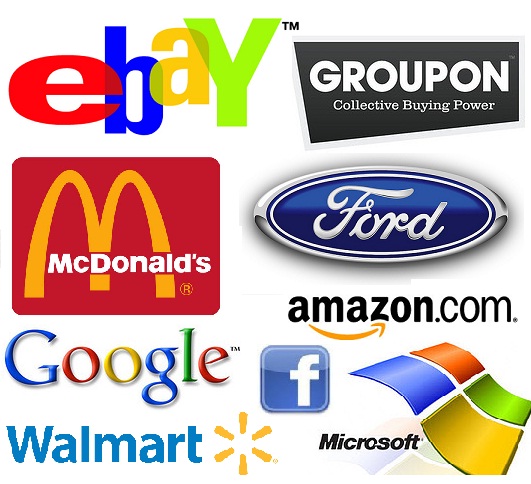The modern commercial world is home to a number of highly successful business models, some of which are relatively new while others have stood the test of time for many decades. While it’s almost impossible to decide which of them is the most effective, here are ten business models that have become truly inspirational. Read on to learn more about how some of these brands became the biggest brands in the world.
Ford
While starting out in the early days of motoring as just another home-based entrepreneur, Henry Ford went on to become the owner of the world’s most influential car maker. His innovations in production line technology were to be copied by other manufacturers in a huge variety of industries in the coming years. The resultant changes to the line enabled the company to maintain a more efficient output of work to fewer employees, saving significant amounts of time and money. The Ford production line became the model for manufacturing normality.
eBay
Everybody loves an auction, and eBay have managed to dominate a market that generates millions of pounds on a daily basis. As well as enabling consumers to find anything from thimbles to holidays, the site has become more than useful for anyone who is looking to sell unwanted items for a profit. Every transaction that is completed on eBay leads to a percentage of the sale price being passed onto the company. They supply the platform on which the deals are made, while the sellers themselves supply the products.
It’s a sure sign that a company has got things right when people use its name as a generic term that covers the whole genre. Like Hoover, Sellotape and Coke, Google have become far more than just a brand name. Google gains income from text-based ads on the site, and these are generated in specific response to the user’s search enquiry. Marketers love Google because they are able to target specific markets with ease. If you want to see for yourself just how successful the company has become, just Google it!
Amazon
Thanks to clever advertising, a streamlined operation and an ability to rely on modern international delivery systems, Amazon have gone from a small provider of books based in Washington State to a global phenomenon which supplies a huge range of consumer goods at prices to suit even the most frugal of buyers. Amazon’s business model is different from its rivals in that the company believes in using vast warehouses in strategic locations to process orders. Many others prefer smaller units handling regional orders, but for Amazon the solution is to go large.
Groupon
The concept behind Groupon is a simple one: Offer customers a deal of the day via email, after having negotiated special one-off offers from suppliers in advance. Now offering superb goods, services and experiences in a huge number of locations worldwide, the company – whose name derives from ‘group coupon’ – started life in Chicago.
McDonald’s
These days, McDonald’s serves more than 68 million customers every day, but there was a time when it was a simple, home-spun burger restaurant in San Bernadino, California. More than 70 years later, the chain actually comprises restaurants run by either franchisees, affiliates or the company itself. McDonald’s believes in the franchise system implicitly, in part because it means the risk of any downturn isn’t borne solely by the company itself. The organisation also places great emphasis on the introduction of new menu items on a regular basis, ensuring a continuing stream of customers.
Microsoft
Over the past few years, a number of software companies have come and gone, but none of them have had the impact of Microsoft. The organisation which made co-founder Bill Gates a household name began life in 1975 in Albuquerque, New Mexico and is now based in Redmond, Washington. It employs around 97,000 people. Microsoft have maintained a highly successful, if somewhat controversial, business model, Their operating system enjoys direct links to all of its products, and if an outside company wants to incorporate their own compatible software they have to pay substantial royalties to Microsoft.
Wal-Mart
The phrase ‘stack them high, sell them cheap’ was attributed to Jack Cohen, the British founder of Tesco, but it has never been better exemplified than in the business model of Wal-Mart. Founded in the 1960s in Arkansas, there are now almost 9,000 Wal-Mart stores in both the USA and elsewhere. Another controversial company, Wal-Mart aggressively encourages suppliers to keep their prices to an absolute minimum, thereby enabling the stores to offer temptingly low prices to customers.
The seemingly unstoppable rise of social media platforms in the last decade or more has taken many observers by surprise. With more than a billion worldwide users around the world, Facebook is undoubtedly the king of the social media jungle. As well as enabling people all over the globe to communicate and interact instantly, the site also enables commercial organisations to target specific interest groups with their advertising campaigns.



